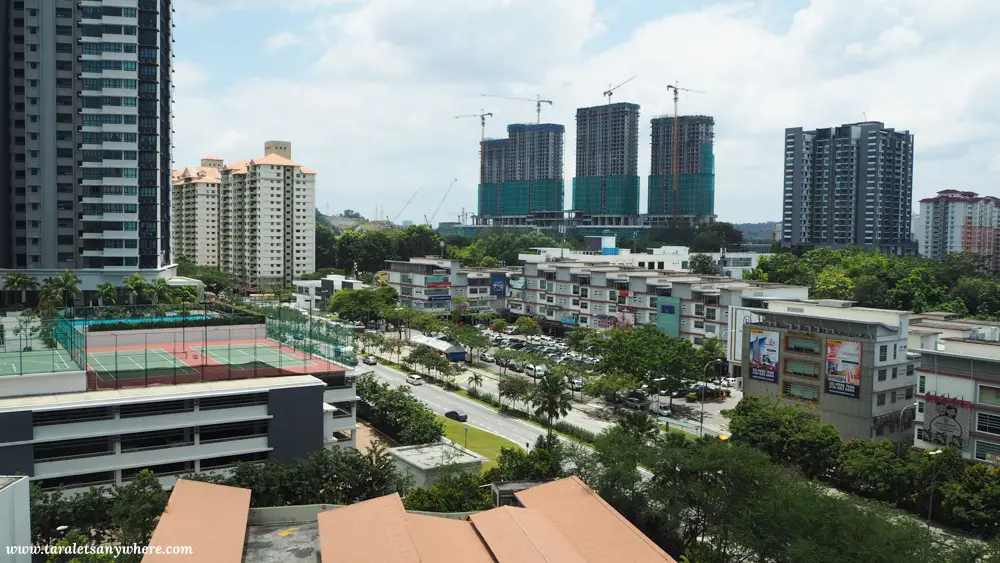
What It’s Like Living in Kuala Lumpur, Malaysia
It’s my 3rd month in Kuala Lumpur and I thought I’d share with you guys what it’s like living here in Malaysia!
I know it’s a short amount of time and my points of view can still change, but at least it can give you a hint of the life of a Filipino expat here.
Contents
- Locals: Nice and friendly people
- Communication: A bit of a struggle
- Malaysian cuisine: One of the best in the world
- Markets: Lots of healthy choices
- Weather: Same, same but different
- Local Businesses: Supported and thriving
- The Downside: Limited attractions
- In General: Living in Malaysia is a breather
- What to read next:
Locals: Nice and friendly people
I used to think that Filipinos are the friendliest, but as I meet more people from different parts of the world, it becomes clear that we have much to improve in ourselves. We are kind and generous especially toward foreigners sure, but towards each other it’s often a different matter.
It was a pleasant surprise to know that the locals in Malaysia are generally nice people. It’s actually difficult for me to describe eloquently what I mean by this, so I’ll give a few stories.
When I arrived here, I contacted a lot of unit owners for room viewing. I took the first one I visited where the other housemates are also Filipinos, and so I informed the others about my decision and to let them know I was cancelling my visit for viewing. Filipinos sent me a curt “Ok” (which, if you know Filipinos, implies that they were personally offended) while Malaysians gave a longer response, along the lines of, “Okay, thank you for informing me” or “Okay, have a good day.” I don’t know about you, but this is pretty telling to me.
Another one is when a friend of mine bought a bunch of bananas from the store in front of our condo. She’d already eaten half of the bananas, but the remaining ones did not ripen properly so they were kept untouced. She returned it to the store and the store owner replaced it with new stock. No questions asked. When she said thanks, the owner got confused and asked her, “Why are you thanking me?” We were amazed that this occurred without an argument or cat fight.
I think the best way is to say, it’s the little acts of kindness that count. People smiling in elevator rides, a stranger offering to share an umbrella when it rains, and so on.
Communication: A bit of a struggle
Perhaps my “great struggle” in living in Malaysia is communication.
A good chunk of the population speaks decent English, but there are also locals who don’t understand a word. So knowing rudimentary Malay is a must especially when you’re out shopping or eating in a restaurant. But I found that it isn’t enough. Even though I speak phrases in Bahasa Malaysia, the locals don’t understand me. It’s like they have a radar that senses whether you’re a foreigner and that automatically makes you impossible to understand.
(Edit: I received a few comments about this. Yes, I am staying in Kuala Lumpur, but not in the city center. I’m about 20 minutes away from there and this is one of the non-touristy areas. If you’re staying in the city center I’m sure it’ll be easier for you to communicate, but in my experience it isn’t.)
I also find it challenging to converse in English with the Chinese locals. I don’t speak Mandarin so this is our common language and it’s important because more than 90% of my officemates are Chinese.
They speak fast and they omit certain characters — in particular, the letter “R” or the last syllable of a word. Children sounds like “chawren”, bicycle is “pasikol.” A lot of times, I have to ask them to repeat themselves and even then I am still clueless. Sometimes I give up and then just laugh, nod or say “Hmm.”
More importantly, in a career field (software engineering) that is strictly based on requirements, this is something I have to get used and adapt to.
Malaysian cuisine: One of the best in the world
Malaysian food is great, and the locals know it.
During commute to work, Grab and Uber drivers often ask me (1) what I think of the country and (2) what I think about the food. Always in that order. I say I love the food, and it’s true.
I’m not a great fan of Filipino cuisine, to be honest. For someone who is passionate about life and food, it just doesn’t live to standards.
We do have some good dishes. Sinigang has long been a favorite of mine. However, in general there seems to be a lack of focus on quality as well as innovation. Also I noticed that new restaurants in recent months design their menu based on fad, not on food quality or food that you will actually want to eat. So there are always new items (a burger-and-pizza in one) that taste-wise are just so-so.
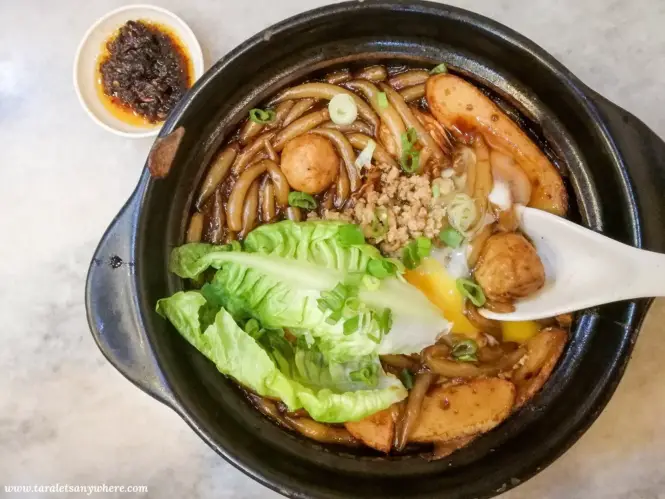
Malaysian cuisine is diverse, with Malay, Chinese and Indian dishes. Currently, my favorite Malaysian foods are: roti canai and teh tarik for breakfast; nasi goreng, Hainanese chicken, kuey teow or char siew noodles for a full meal; and taufufa for dessert. Oh, and those sticks of chicken satay you can buy from food trucks starting at late afternoon.
Another thing that I like is how locals put effort into making their food. I read in a Malaysian blog that local stalls make their noodles and other ingredients, and this makes the food more authentic. In fact, the best way to tour a guest around is to eat in regular eateries rather than splurging on expensive (sometimes Westernized) restaurants.
Markets: Lots of healthy choices
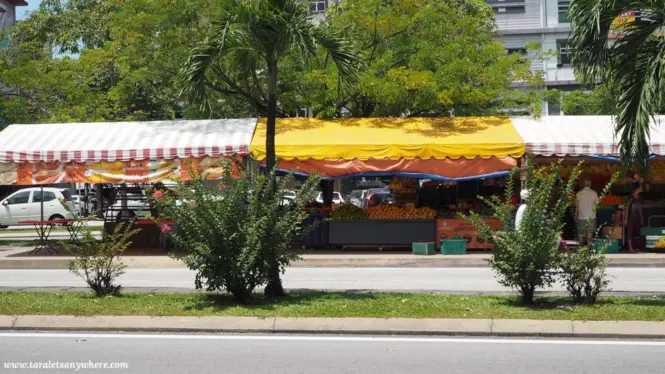
If you’re health conscious or want to start a healthy lifestyle, you’ll love living in Kuala Lumpur.
Markets hold a variety of fruits and vegetables at a cheap price! When I arrived, I was amazed that I can get a pack of muesli for RM10-12 (P130-150) or chia seeds for about RM15 (P200). Fresh berries such as blueberries and strawberries are also easily available, for RM10 or above (P130 above).
In our area in Bukit Jalil, there are at least four stores nearby selling fresh produce: a grocery mart, two fruit stalls and a juice store. We also have a shop selling organic items.
Weather: Same, same but different
Some people say that the weather conditions here is similar to that in the Philippines — the hot and rainy seasons. But may I add that there are significant differences.
Rains here in Kuala Lumpur only lasts one or two hours at most, and it’s pretty much tolerable. There are no onslaught of tropical typhoons that bring destruction to coastal communities. In the Philippines, an hour of rainfall alone can cause a traffic jam nightmare that lasts a whole night.
That saying, it’s pretty much tropical weather all-year round.
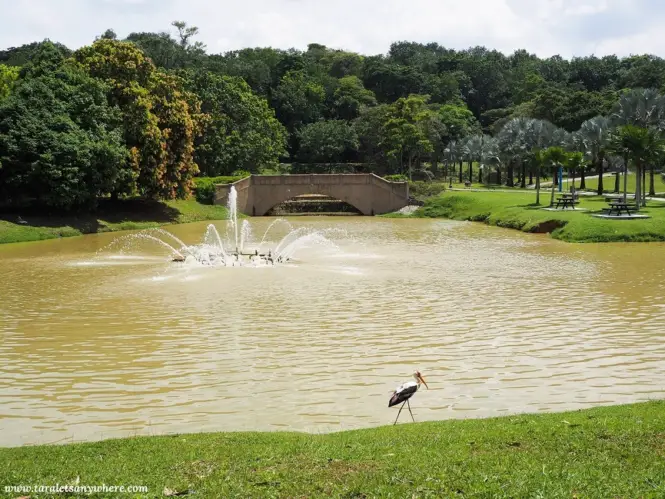
I also read that Malaysians are aware of how hot it can get in some days, and that’s why there’s a lot of trees for cover. Back home in the Philippines, trees are cut down, green spaces are converted to airconditioned malls and parking lots. (I am looking at you Baguio and that ongoing construction in Ayala Triangle.)
As for the hours, I love how sunrises and sunsets are later compared to that in the Philippines. It’s still a bit dark at 7AM, perfect for sleeping in, and light at 6-7PM, so I feel that there’s still much I can do after going home from work.
Local Businesses: Supported and thriving
There is a lot of local businesses thriving in Malaysia. For someone who grew up with Western brands dominating the market or otherwise local brands that are part of a few successful chains, this is nothing short of amazing.
For instance, there are mamaks, hawker stalls and other restaurants run by families. Meanwhile, in the Philippines, you can see the same food chains again and again: there’s Jollibee, Greenwich and Mang Inasal (owned by the same umbrella company); McDonalds, and so on. There are monopolies in the market, and local brands find it difficult to break through due to lack of support.
In Malaysia, the locals patronize their own.
The Downside: Limited attractions
Kuala Lumpur is great, but it’s also a typical city with limited attractions. Day trips here are also few: there’s the usual Cameron Highlands, Penang, Langkawi, Melacca, Ipoh and a few others.
That’s the one thing I miss about the Philippines. We have over 7000 islands and so much to offer: endless mountains, fields of rice terraces and beaches, beaches, beaches.
Even for weekend trips from Manila, there are a lot of options. You can go hiking to the rice terraces in Batad or Maligcong, trek up a mountain like Mount Pulag, island hop in nearby provinces such as Pangasinan or Mindoro or sneak in a quiet spa retreat up in the mountains of Antipolo.
Every country has its plus points, I guess.
In General: Living in Malaysia is a breather
In general and in a lot of ways, living in Malaysia is great.
Food is amazing, the locals are nice and friendly. It’s no wonder Kuala Lumpur is often listed as a top expat destination. Furthermore, tax is lower compared to the Philippines (as of this writing) and cost of living is low. From RM300 to 600, you can get a small- to medium-sized room in a nice condo, with a pool.
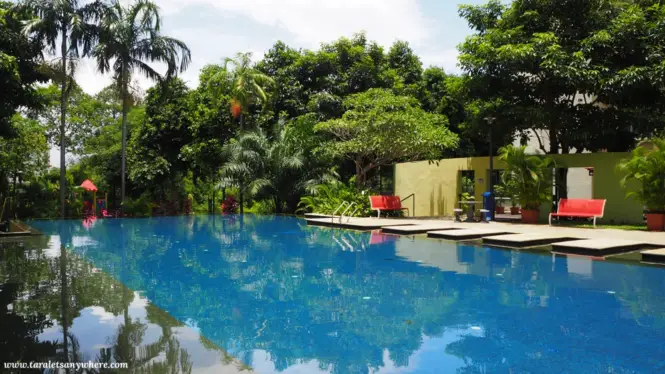
It’s actually not just in the things that Malaysia offers, but also in those it doesn’t — the traffic and pollution in Metro Manila, the daily complaints, the toxicity of people in the social media… everything we Filipinos live with but would like to escape from. Here, it is generally more peaceful and I daresay livable.
Obviously, 3 months is a short time to completely get to know a place much more a country, but it’s enough to get a feel of what it’s like. Presently, as you can tell, I have a great impression of Malaysia.
Have you been to Malaysia? What are your thoughts about it?
What to read next:
Here are the posts about my life in Kuala Lumpur:
- What It’s Like Living in Kuala Lumpur (Malaysia)
- Living in Kuala Lumpur: Expectations vs Reality
- My Favorite Foods in Malaysia
Here are other related resources about expat living:

Katherine Cortes is a long-time backpacker and a freelance writer/editor. She likes beaches, snorkeling trips, and relaxing staycations (preferably with bath tubs!).




15 Comments
Gwenny
After reading this makes me wanna migrate to Mlaysia .. How I wish its easy.. 🙁
Joshua
kat, could you tell.me po san yung condos na 300 to 600.rm ? Hehehe and is that monthlt na po na charge?? thaank you!!
Katherine Cortes
Search kayo sa ibilik.my.
Melvin
Hi,
We’re thinking of moving to Penang, Malaysia due to a JO… Not sure if you’re still in Malaysia but is the cost of living still low as compared to the Philippines?
Katherine Cortes
Yep, it still is.
Noel Pacheco
The Philippines has a lot of catching up to do in making itself a country of choice for a variety of world travelers—and not just your typical run-of-the-mill OFWs, Balikbayans, and men “looking for love in all the wrong places” that travels back and forth to this country. I know it’s not nice to say negative things about the Philippines as a Filipino, but it’s really tiresome to hear more bad news, than good news, coming out of the Philippines. It’s time for “all” Filipinos to revamp their country’s image if they want to attract world-class visitors to their country.
Roen
I’ll be going to Kuala Lumpur also this October. I’d like to talk to you more about the living condition in KL.
Henry Collins
The food looks delicious and the scenery looks awesome. It definitely worth visiting. I am definitely planning a trip to Malaysia.
vinneve
I admire you for being brave to travel and explore and even lived there. I do feel that I can live in some Asian Countries and I do agree with you with both pros and cons. I am currently in PH but soon will leave again as I feel after almost 15yrs being away my standards changed and my life from previous Countries cannot be compared to here because of so many reasons but I still love PH though. It is really good to explore the World so we’re aware which part is the best for us. 🙂
Katherine
Somehow I am touched with what you said. I’d only been abroad for a few months and I do appreciate the peace, convenience and quality of life offered here as compared to my home in the Philippines. Yes I do love the PH but a part of me understands why some people move away permanently… Unlike other Filipinos who do so with a feeling of hopelessness or condescension for the country, I understand that the PH – like all other places in the world – has good and bad qualities, and ultimately the decision to stay or leave is based on how you want to take care of yourself and those around you.
Good luck and I hope you enjoy the rest of your stay in the PH! 🙂
Amielle
I’ve always loved reading posts like this! May draft rin ako about what it’s like to live here in Abu Dhabi pero hinihintay ko pa mag-ilang months pa just so I can write more. Hehe. And shoutout talaga sa Baguio na ‘yan, nako! Hahaha
Katherine
Ooh. Looking forward to reading about your experience in Abu Dhabi. 🙂 Honestly to me the Middle East seems scary and so it’s interesting to know abt expats’ perspective on it.
Paul
Interesting blog post Tara, timely for me to read as I’ll soon travel to Kuching Malaysia to check it out as a possible home base to live in.
Great to hear people are positive and friendly, that’s the most important thing to me when living somewhere really.
I was a bit surprised to read that most people in Malaysia don’t speak English though. Because most Malaysian people that I met in Boracay did speak English, and there an online Malaysian forum also, where English is the main language.
Anyway, interesting to get an impression of Malaysia like this, looking forward to try out the food 🙂
Katherine
I think most people can speak English, but if you go to the local grocery or restaurants (in non-touristy places) it’s not uncommon to meet locals who don’t.
Frank
Hi Katherine!
Nice post. We’re thinking of going to Malaysia in March and I’m happy to read your comment. We miss Asian cuisine and having been to Penang a long time ago I already look forward to the food (especially the Indian cuisine which I remember being fantastic).
Good to know you also find the people friendly.
Frank (bbqboy)